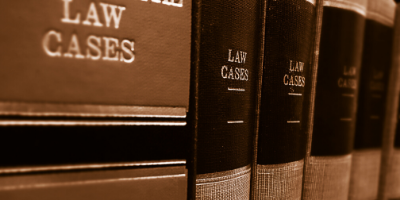Quarterly Journal Volume 51, Issue 4
In This Section
 QJ 51.4 - Copyright, Literally
QJ 51.4 - Copyright, Literally
Glynn S. Lunney, Jr
The Copyright Act is a statute, but courts seldom treat it as one. Instead of relying on the precise language of the statute, courts often treat the Act as some general prohibition on plagiarism or copying writ large. This article argues for a different approach. It argues that courts should treat the Copyright Act like a statute and define a copyright owner's exclusive rights according to the precise language by which Congress defined those rights. The results are startling. Treating the Copyright Act as a statute, courts should define the exclusive rights far more narrowly than they currently and generally are.
 QJ 51.4 - Orphan Drug Exclusivity and Catalyst: A Possible Catalyst for Gaps in Treatment Within Subpopulations of Rare Diseases and Conditions
QJ 51.4 - Orphan Drug Exclusivity and Catalyst: A Possible Catalyst for Gaps in Treatment Within Subpopulations of Rare Diseases and Conditions
Kelsey Ann Kerr
Persons with rare diseases or conditions already are often left without treatment, due to inadequate research, or funding for research. Congress thus enacted the Orphan Drug Act ("ODA") to incentivize pharmaceutical companies to perform further research and development to treat these diseases. What is often neglected, sadly, is how there are subsets—subpopulations—within these diseases for whom drugs are not FDA-approved. Under the new Catalyst Pharmaceuticals, Inc. v. Becerra ruling, the Eleventh Circuit interpreted the ODA to grant orphan drug exclusivity ("ODE")—which traditionally was understood by FDA to be seven years’ exclusivity of the market for a particular approved “intended use”—for the entire condition for a particular drug. If FDA follows this interpretation, subsets of the population may be left without treatment while they wait for the exclusivity period to pass so that FDA can grant approval for their use of the drug. To avoid this result, there must be a legislative fix that amends the ODA such that the exclusivity provision relating to the “same drug for the same disease or condition” is applied for only the “approved use or indication.” To further enhance access to critical therapies for rare diseases, a clinical testing requirement should be imposed to include subpopulations of rare diseases or conditions. Alternatively, FDA should, as it has in its January notice, find ways to side-step the Catalyst ruling so that subpopulations have access to necessary treatment.
 QJ 51.4 - The Necessity of the De Minimis Defense Within Music Sampling
QJ 51.4 - The Necessity of the De Minimis Defense Within Music Sampling
Wanjiru (Wan) Gikiri
Sampling is a unique technique consisting of taking small bits of prior recordings and including them in a new sound recording. However, despite sampling promoting a progression in creativity, some believe that it is “copying” and should not be permitted. This argument, which has been adopted by the Sixth Circuit, rests on the idea that if an artist takes any part of a prior work, even if it is minuscule, they must obtain a license. The Ninth Circuit created a circuit split when it developed the opinion that the “de minimis” defense can be used in sound recording cases involving music sampling. The validity of the Ninth Circuit's opinion is notable, given it promotes the goal of copyright. The best solution to the current circuit split would be to implement a two-part statute that (1) codifies the de minimis defense properly into copyright law and (2) ensures every defense available for other copyrightable works is available for sound recordings. Thus, sampling would be a permissible art form, and artists would be able to develop upon prior works to create new works of art, overall promoting creativity.
 QJ Volume 51 Article and Author Index
QJ Volume 51 Article and Author Index
Upcoming Events
-
.png?sfvrsn=48c235e_1) 2026 Patent Prosecution Bootcamp - Arlington, VA
2026 Patent Prosecution Bootcamp - Arlington, VA
March 4 to 6, 2026 | Up to 1235 minutes, including 60 Ethics minutes
-
 AIPLA CLE Webinar: Damages 2025 Year-in-Review: Lessons and Litigation Strategies
AIPLA CLE Webinar: Damages 2025 Year-in-Review: Lessons and Litigation Strategies
March 11, 2026 2:00 PM to 3:30 PM | Eligible for up to 90 Mins CLE
-
.png?sfvrsn=20d96f46_1) AIPLA LinkedIn Live: What the 2025 AIPLA Economic Survey Reveals About IP Practice Today
AIPLA LinkedIn Live: What the 2025 AIPLA Economic Survey Reveals About IP Practice Today
March 12, 2026 12:00 PM to 12:45 PM
-
2026 Women in IP Global Networking Event
April 16, 2026
The annual Global Networking Event connects intellectual property practitioners from around the world for a day of networking, education, and creating meaningful connections. This year’s theme, Rooted in Real - Women in IP Redefining the Narrative, is an opportunity for the AIPLA Women in IP Law Committee to celebrate authentic experiences, foster genuine connections, and showcase the real stories of women shaping the field of intellectual property law. -
-(1).png?sfvrsn=169c8b82_1) Careers in IP
Careers in IP
April 22, 2026 12:30 PM to 1:30 PM | No CLE

